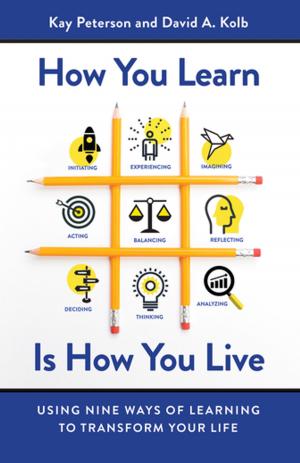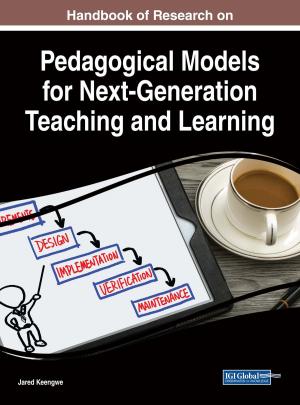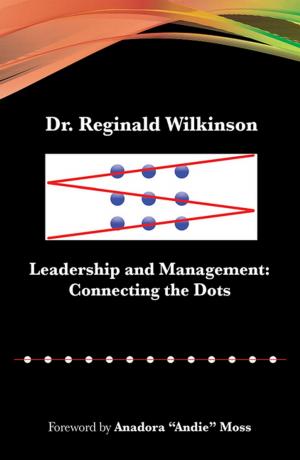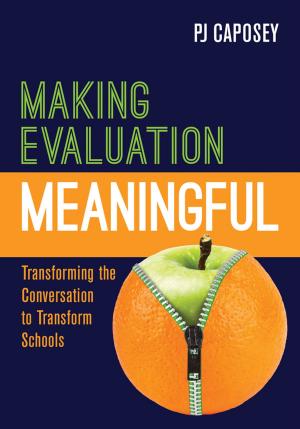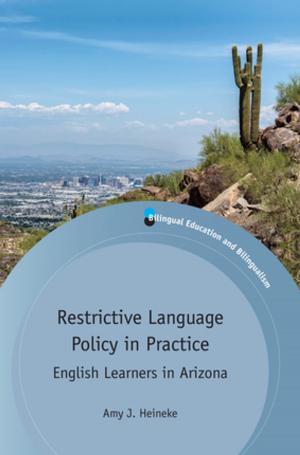Preparing Education to Serve a New World
The Global Citizen
Nonfiction, Reference & Language, Education & Teaching, Teaching, Teaching Methods, Educational Theory| Author: | Roy Andersen, Naomi Andersen | ISBN: | 9780995610699 |
| Publisher: | The Moving Quill Publishing Co. | Publication: | November 22, 2017 |
| Imprint: | The Moving Quill Publishing Co. | Language: | English |
| Author: | Roy Andersen, Naomi Andersen |
| ISBN: | 9780995610699 |
| Publisher: | The Moving Quill Publishing Co. |
| Publication: | November 22, 2017 |
| Imprint: | The Moving Quill Publishing Co. |
| Language: | English |
We worry about our children in school. We think about how school can help our children to learn, and we trust teachers to do their best so that our children can gain the best grades when they leave school. This is what we focus upon. We do not focus upon and most do not know what the real purpose of school is, and so why it processes rather than develops our children.
Every society requires citizens who will comply with its moral guidelines and who are able to work with the level of technology that drives their society. The real purpose of school is purely and solely to meet these two criteria. This is why education is funded by its government, and so the real reason why it exists.
It is upon this basis that teachers are trained, and then conditioned in the efficiency of their job as they present information to their students and assess the performance their students make. By this manner the students of education, from those just entering the infant school to those leaving university, will struggle by their personal opportunities and the disadvantages and distractions they can overcome to succeed in their grades. This is the strategy of education.
Our greatest error in reading this is to assume the world that our children will grow up into will be the same as ours. It will not. Most of us have heard of nanotechnology. When we think of this, we tend to think of machines that use nano parts, such as nano-cables. Very few people outside this highly specialized field have any conception of what nanotechnology is really about. The aim, and it is rapidly becoming a reality, is for nanomachines to construct every item we use and need for our lives. In effect, this means that computerised models controlled by a very advanced level of artificial intelligence will run our world.
This book discusses and explains the probable reality of nanotechnology, and how it may ultimately force dramatic changes in the availability for work and how this could change the social structuring of every country. It is to this world that education must now prepare our children, because such a technology suggests a serious breakdown of all our people infrastructures, with serious consequences to the ways people live in a society. While education today focuses upon children being taught through computer programmes, it walks blindly into the serious social problems they are not now being prepared to handle for the time when they become citizens.
We worry about our children in school. We think about how school can help our children to learn, and we trust teachers to do their best so that our children can gain the best grades when they leave school. This is what we focus upon. We do not focus upon and most do not know what the real purpose of school is, and so why it processes rather than develops our children.
Every society requires citizens who will comply with its moral guidelines and who are able to work with the level of technology that drives their society. The real purpose of school is purely and solely to meet these two criteria. This is why education is funded by its government, and so the real reason why it exists.
It is upon this basis that teachers are trained, and then conditioned in the efficiency of their job as they present information to their students and assess the performance their students make. By this manner the students of education, from those just entering the infant school to those leaving university, will struggle by their personal opportunities and the disadvantages and distractions they can overcome to succeed in their grades. This is the strategy of education.
Our greatest error in reading this is to assume the world that our children will grow up into will be the same as ours. It will not. Most of us have heard of nanotechnology. When we think of this, we tend to think of machines that use nano parts, such as nano-cables. Very few people outside this highly specialized field have any conception of what nanotechnology is really about. The aim, and it is rapidly becoming a reality, is for nanomachines to construct every item we use and need for our lives. In effect, this means that computerised models controlled by a very advanced level of artificial intelligence will run our world.
This book discusses and explains the probable reality of nanotechnology, and how it may ultimately force dramatic changes in the availability for work and how this could change the social structuring of every country. It is to this world that education must now prepare our children, because such a technology suggests a serious breakdown of all our people infrastructures, with serious consequences to the ways people live in a society. While education today focuses upon children being taught through computer programmes, it walks blindly into the serious social problems they are not now being prepared to handle for the time when they become citizens.




